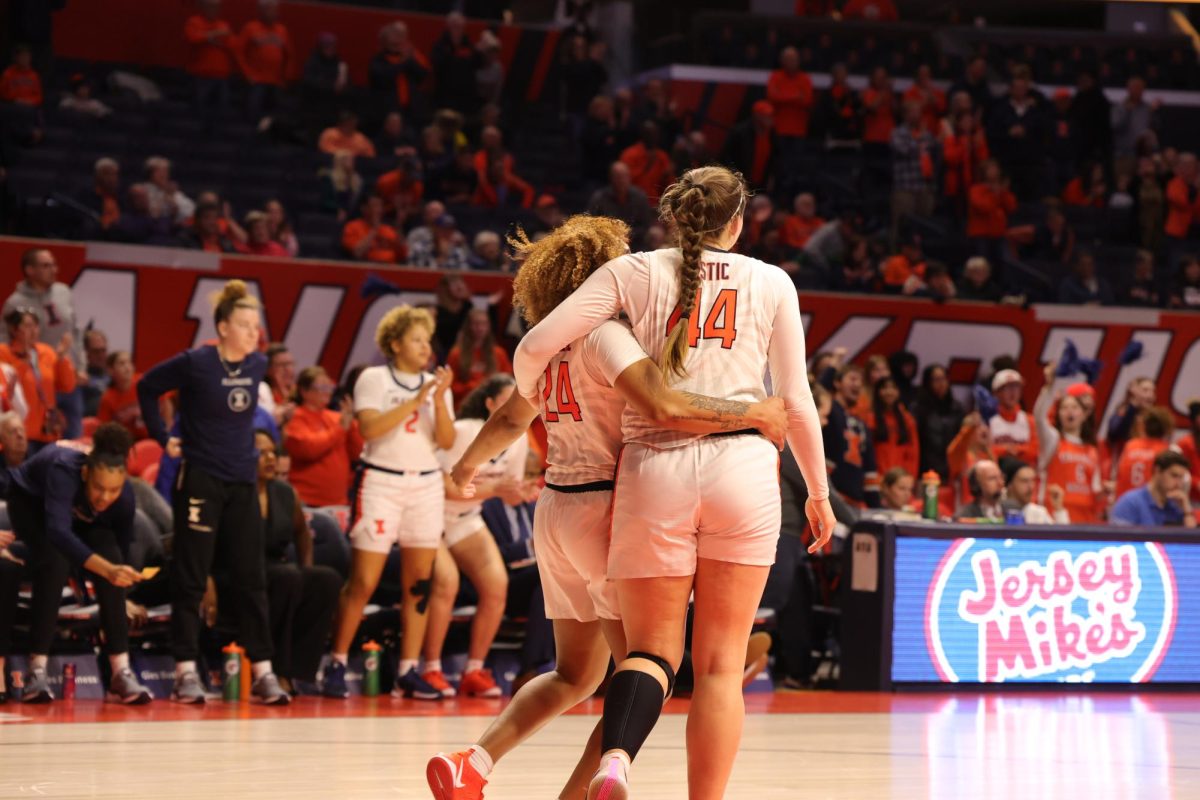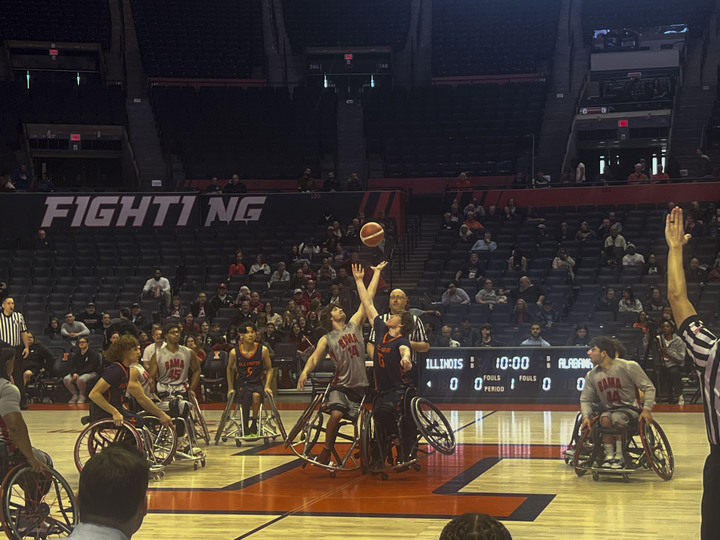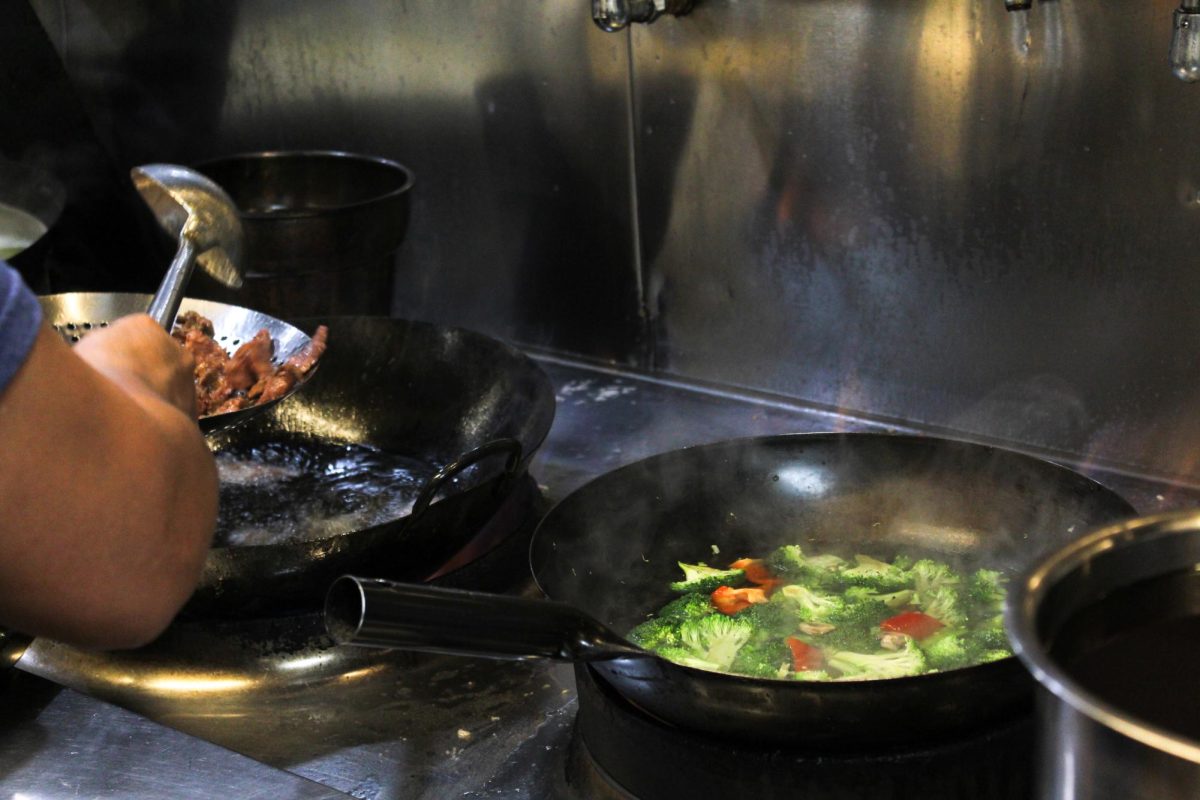Having attended the same Catholic Church for his whole life, Nick Koberstein came to the University his freshman year looking for some new churches in the area.
However, as a gay man, Koberstein, junior in LAS, noticed it was difficult to find a church in which he could be open about his sexual orientation and be fully accepted.
“I kind of always felt like once I got in with a group and I got to the LGBT issue, it kind of stopped there,” he said. “People said I could still come, but there was always that issue.”
In response, he submitted an entry in the LGBT (lesbian, gay, bisexual, transgender) Resource Center’s newsletter asking if anyone was interested in meeting up to discus the relationship between Christianity and the LGBT community.
The feedback was positive and he joined with some other students to form Building Bridges, a registered student organization for Christians and Allies in the LGBT community, early in 2009.
Get The Daily Illini in your inbox!
With the conclusion of LGBT Pride Month — as June was first designated by President Barack Obama in 2009 — the LGBT community continues to look for more acceptance not only through legislation but through spirituality, and Building Bridges is just one of ways that the unlikely pair of the LGBT community and Christianity have come together in Champaign-Urbana.
“People, I feel, in the community are ready for communication rather than vilification,” said Chris Hansen, vice president and treasurer of Building Bridges. “I feel like they haven’t known in the past how to move forward, and this group gives them an opportunity to think these things through and even if their church isn’t accepting, how can they maybe show dignity and respect.”
The group provides a forum for people of all opinions to join together to discuss the ways that the LGBT and Christian communities can coexist without dramatically changing their spiritual thought.
“Our goal is to change people’s perceptions, not their theology,” he said.
“Particularly on churches that are looking at what they want their stance on LGBT issues to be.”
Hansen, a graduate student in Materials Science and Engineering, said about 20 people show up to the their meetings — every second and fourth Tuesday of the month from 6-7:30 p.m. at the Wesely Foundation, 203 W. Green Street in Urbana — and its success has exceeded their expectations.
“It would have been fine even if we just had the four people that were originally interested,” Hansen said. “So to have not only people come but also interest from other groups and the community, who have no vested interest in this even, has been surprising and very welcome.”
One of the recognizably LGBT-friendly, local churches is the Community United Church of Christ, 805 S. Sixth St. in Champaign. Since May, Community has been waving rainbow flags from their building facing Sixth and Daniel streets.
“What was really amazing is how many people came into the church,” said the Rev. Leah Robberts-Mosser, pastor at Community United Church of Christ since last December. “Like, literally just wondered in off the street because of the flags, wondering, ‘Why are these up here? What does this mean?’”
Her business card that reads “God is still speaking” sums up the stance that Community takes on issues such as LGBT acceptance. It is a less fundamental, more liberal denomination of Christianity, Robberts-Mosser said, that uses modern issues and ways of thinking when finding meaning in the Bible.
“How is it that God could be speaking still to us today beyond just the few thousand words that are contained in this book,” Robberts-Mosser explained of her theology.
Community is one of the churches of the United Church of Christ that has gone through the Open and Affirming Program — a program that establishes the church as one that welcomes people of all sexual orientations.
“The church has been a dangerous place for gay folks,” she said. “So it’s important, as the pastor, that I create a safe space for queer people and that people are able to be who they are, tell their story the way they want to tell it and that we don’t do damage to people.”
Like the United Church of Christ, the Presbyterian Church has a process and a title for individual parishes to become more welcoming to the LGBT community.
McKinley Memorial Presbyterian Church, 809 S. Fifth St., is a More Light Presbyterian church — part of a program whose mission is “to work for the full participation of lesbian, gay, bisexual and transgender people of faith in the life, ministry and witness of the Presbyterian Church,” according to the More Light website.
“For us, there’s much more focus on the spirit of the law than on the letter of the law,” the Rev. Keith Harris, associate pastor for campus ministry said.
Although McKinley has been a More Light Presbyterian church since the 1980s, not all Presbyterian churches are this way. Harris said the denomination as a whole is continuing to struggle with answering whether being a pastor and a member of the LGBT community negates their ministry.
People that are openly gay or lesbian are currently not allowed to serve as ministers in the church, but discussion is taking place among church authorities about whether this should be changed, Harris said.
Yet Harris said to only highlight McKinley’s open stance on the LGBT community would be to overlook the real purpose of the church as he sees it.
“It’s more to reach out in the name of love and justice to people in need,” Harris said.





